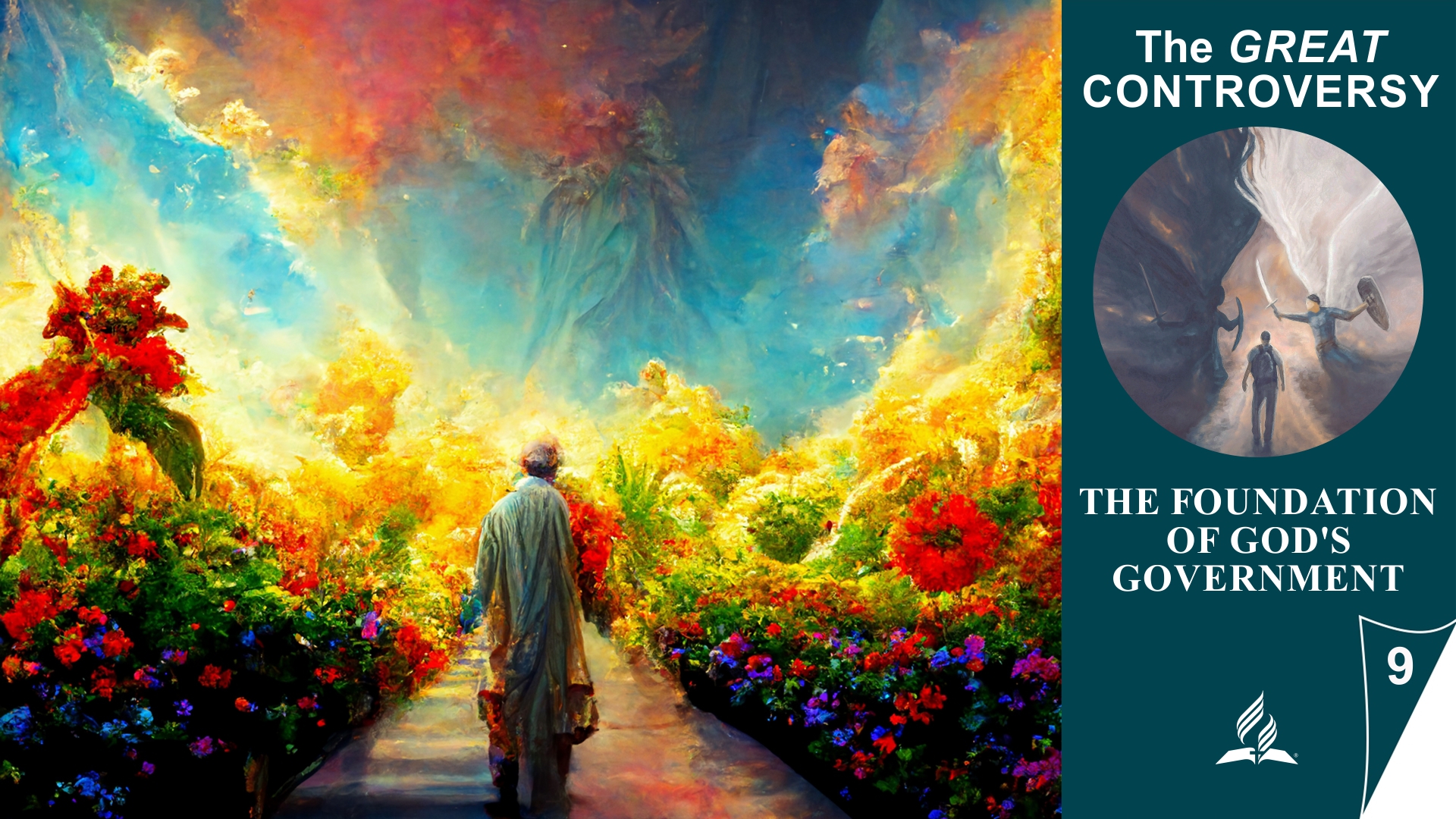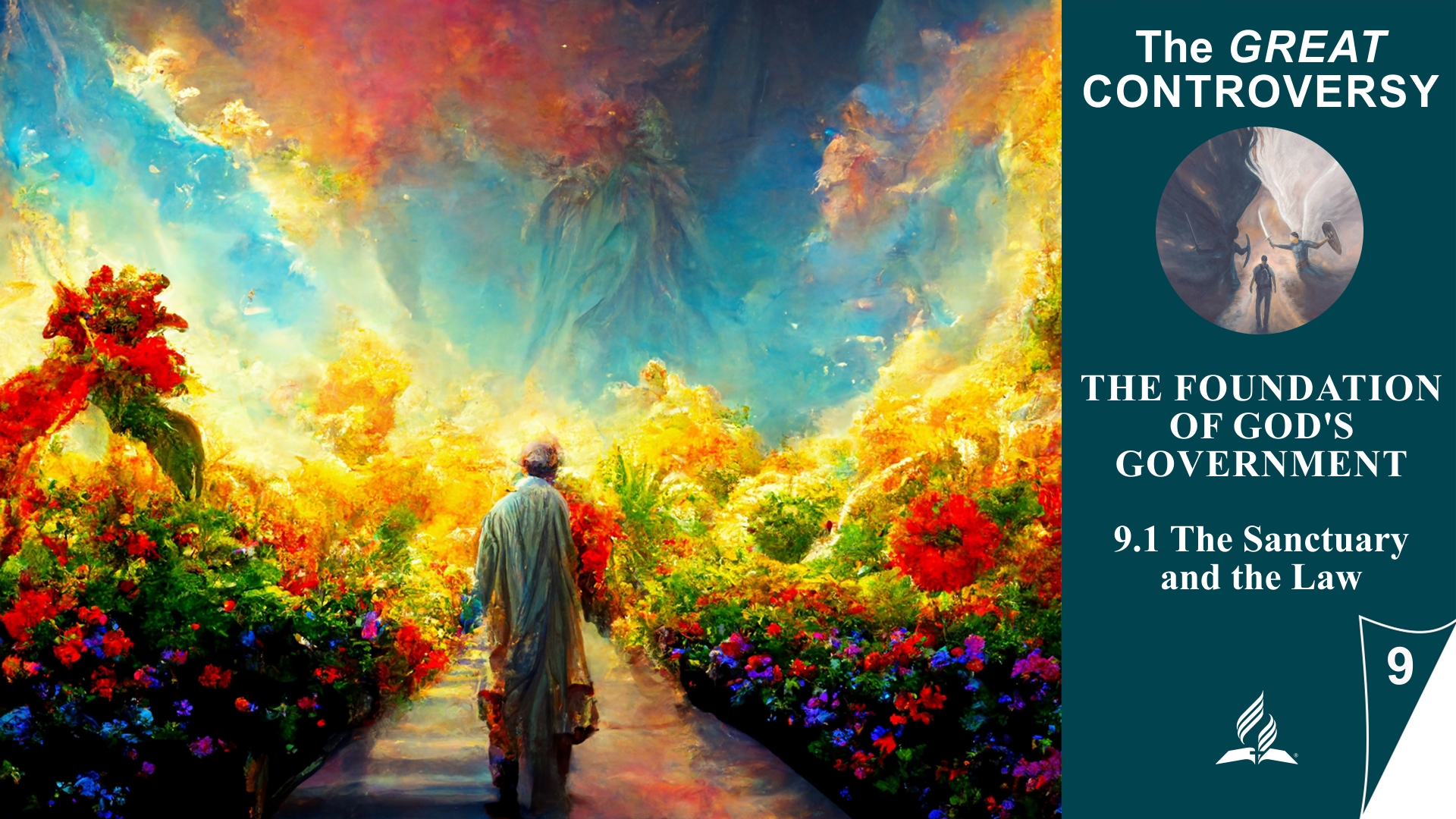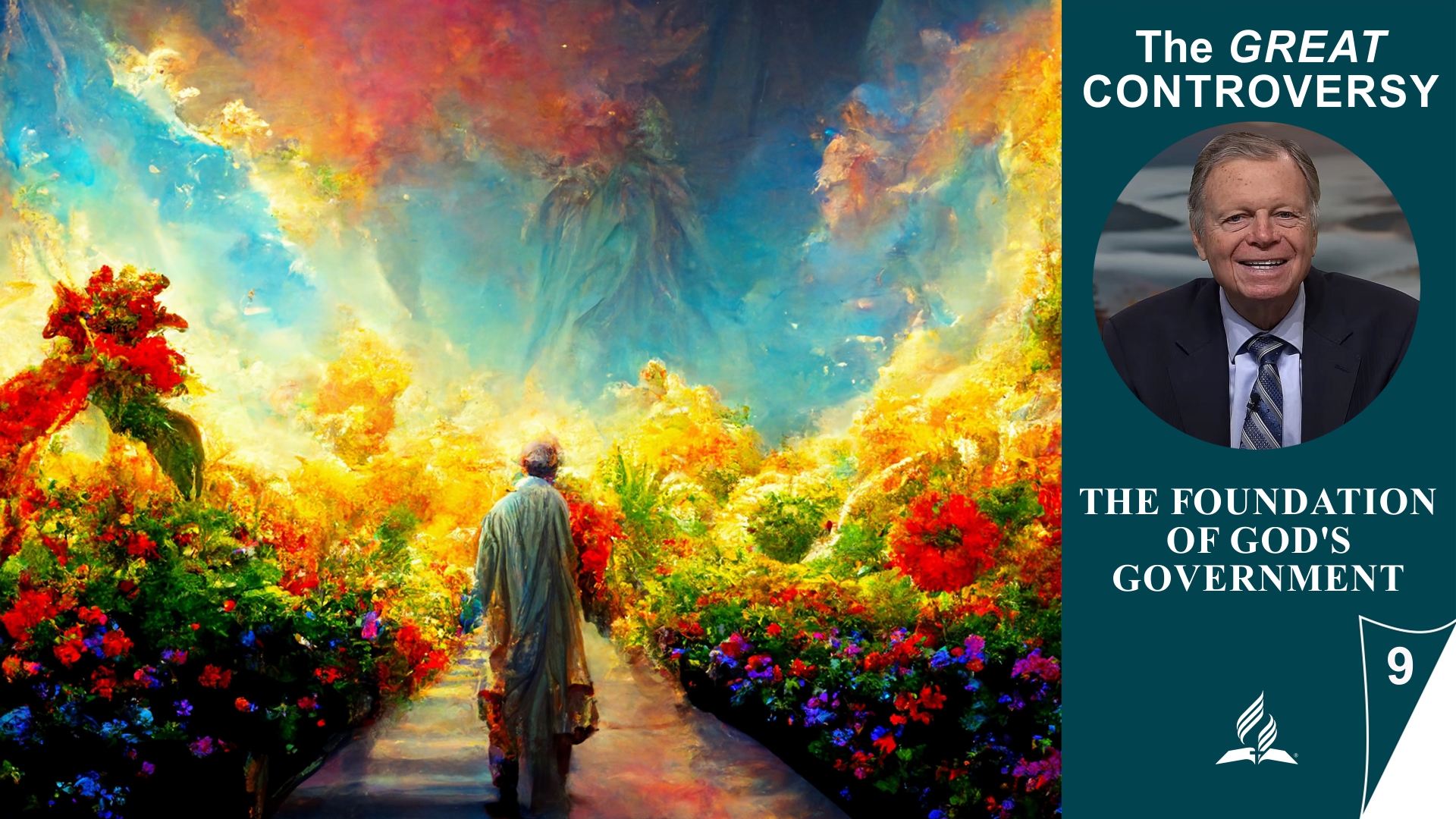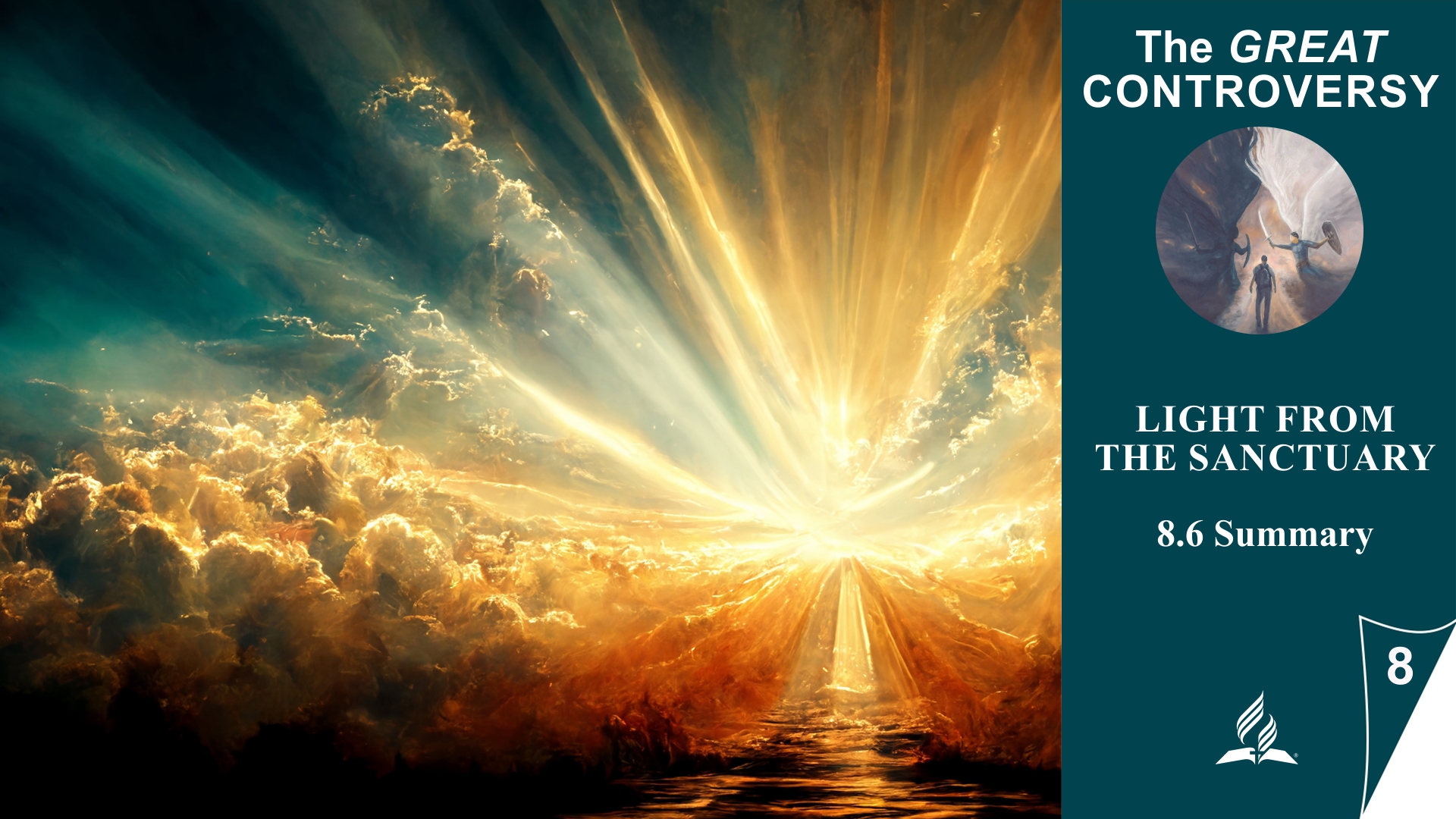
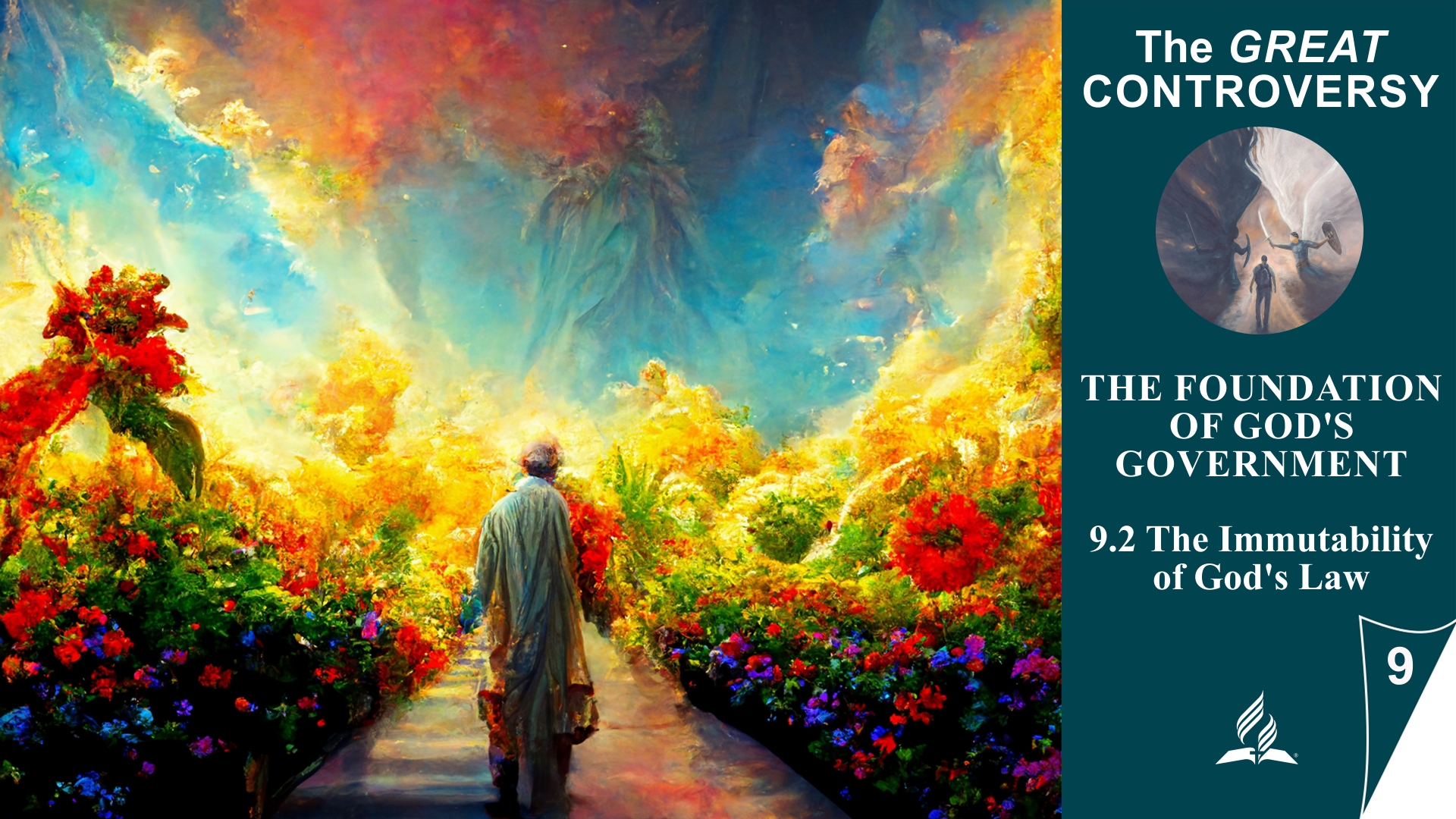
9.2 The Immutability of God’s Law
The Eternal Validity of God’s Law in Christian Faith
Read Matthew 5:17–18; Psalm 111:7–8; Ecclesiastes 12:13–14; 1 John 5:3, and Proverbs 28:9. What do these verses teach us about the Christian’s relationship to the law?
The mentioned verses provide clear insight into the Christian’s relationship to God’s law:
-
Matthew 5:17–18: Jesus explains that he has not come to abolish the law or the prophets, but to fulfill them. The law remains valid until all is fulfilled.
-
Psalm 111:7–8: The psalmist attests to the immutability and eternity of God’s law. His commandments are firm and enduring.
-
Ecclesiastes 12:13–14: The fear of God and obedience to his commandments are considered the duty of man, as God will bring every deed into judgment, whether good or evil.
-
1 John 5:3: Love for God is demonstrated through obedience to his commandments. His commandments are not burdensome to keep when one loves God.
-
Proverbs 28:9: God does not listen to the prayers of those who disregard his law. These verses teach that God’s law, especially the moral law, is immutable, eternal, and binding. It is a source of wisdom and guidance for the lives of believers. Seventh-day Adventists and Protestant reformers emphasize the importance of obeying God’s law, especially the Ten Commandments, as an expression of love for God and for maintaining moral order in society.
Compare Exodus 34:5–7 with Romans 7:11–12; Psalm 19:8–12; 89:15, and 119:142, 172. What do these verses tell us about the relationship between God’s law and God’s character?
The mentioned verses provide insights into the relationship between God’s law and his character:
-
Exodus 34:5–7: Here, God himself reveals his attributes by describing himself as merciful, gracious, patient, full of goodness, and truth. At the same time, he declares that he will not hold the guilty innocent and that he will visit the sins of the fathers upon the children to the third and fourth generations. These attributes of God are reflected in his law.
-
Romans 7:11–12: God’s law is described as holy, righteous, and good. It illustrates that the law itself is not the cause of sin but rather sin uses the law to be revealed.
-
Psalm 19:8–12: The psalmist praises the perfection of God’s law and its ability to revive the soul, enlighten the eyes, and impart wisdom. He also emphasizes the need to guard against hidden faults and to remain pure from willful sins.
-
Psalm 89:15: Here, God is described as just and faithful, with righteousness and justice as the foundation of his throne. These characteristics are reflected in his law, which forms the basis of his rule and his relationship with his people.
-
Psalm 119:142, 172: God’s law is praised as eternal, true, and righteous. It is an expression of his character and faithfulness. Those who love his law and live by it experience joy and blessing in their lives.
These verses clearly show that God’s law is not just a list of commandments but an expression of his character and attributes. It is the foundation of his rule and relationship with his people. Therefore, the observance and obedience to his law are crucial for believers as it is a direct revelation of his divine nature.
What are often the arguments used to claim that we are no longer obligated to keep the Ten Commandments? What do you think lies behind this?
There are various arguments used to claim that we are no longer obligated to keep the Ten Commandments:
-
Abrogation of the law by the New Testament: Some argue that the New Testament, especially the teachings of Jesus, has abolished certain laws of the Old Testament, including the Ten Commandments. They emphasize that love for God and neighbor is the fulfillment of the law and that Christians are under grace, not under the law.
-
Fulfillment in Christ: Another argument is that Jesus Christ fulfilled the Ten Commandments, and thus they are no longer applicable to believers. They see in Christ the fulfillment of the law and argue that believers are freed from the obligation of the law through their faith in him.
-
Cultural changes: Some claim that the Ten Commandments were written in a specific cultural and historical context and are therefore no longer applicable to our modern society. They argue that moral standards have changed over time, and thus we are no longer bound by the commandments of the Old Testament.
-
Emphasis on grace: Some argue that the emphasis on grace and faith in Christ means that believers are no longer under the law but under grace, and thus they are exempt from keeping the Ten Commandments.
However, behind these arguments often lies a theological interpretation aimed at relativizing or minimizing the significance and role of the Ten Commandments in Christian life. Some see them as a restriction on freedom and grace in Christ, while others argue that morality should not be bound by commandments but should come from an inner sense of love and compassion. Ultimately, the perspective on the Ten Commandments depends heavily on the theological orientation and interpretation of the Bible.
The relationship between God’s law and everyday life as well as faith is profound and crucial for the spiritual life of a believer:
-
Guidance and direction: God’s law serves as guidance and direction for the daily life of a believer. It provides clear guidelines and principles for moral behavior, interpersonal relationships, and dealing with God.
-
Sanctification and growth: By obeying God’s law, the believer seeks sanctification and spiritual growth. Following God’s commandments helps to develop character traits such as love, patience, faithfulness, and mercy.
-
Relationship with God: Observing the law is an expression of love for God. By obeying his commandments, one demonstrates devotion and faithfulness to him. The law fosters a deep and trusting relationship with God by encouraging believers to obey his will.
-
Community and ethics: God’s law forms the basis for ethical behavior and a just society. Observing the commandments promotes a harmonious community where love, respect, and justice prevail.
-
Grace and forgiveness: Although God’s law makes demands on believers, it also emphasizes the need for grace and forgiveness. When we break the law, we can be restored through God’s grace and forgiveness, leading to a deeper understanding of his mercy.
Ultimately, obeying God’s law is not just an external duty but an expression of faith and love for God. It touches all aspects of daily life and shapes the identity of a believer as a disciple of Christ.



